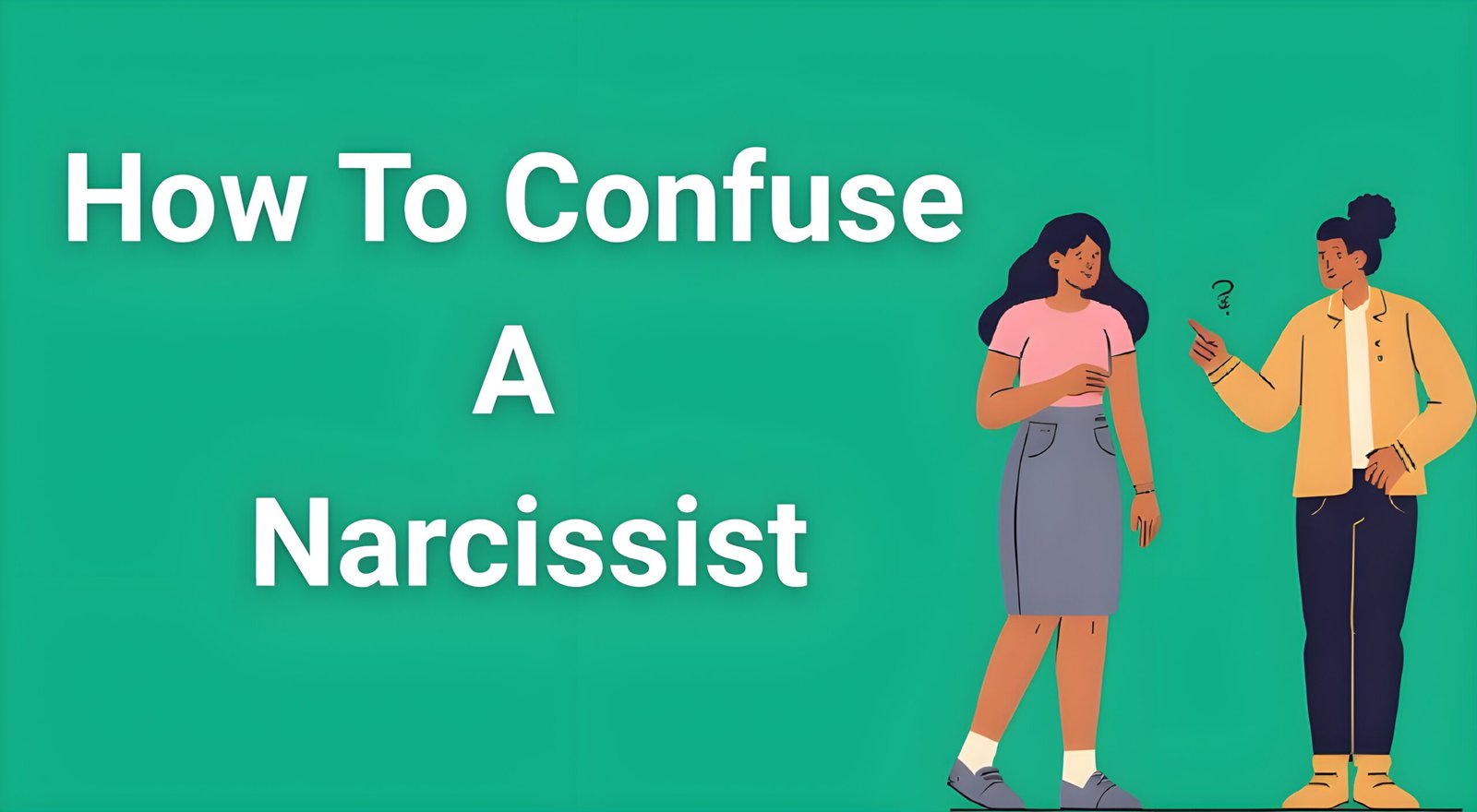When you’re trapped in the web of narcissistic manipulation, learning how to destroy a narcissist with words becomes more than revenge—it becomes survival. After years of gaslighting, emotional abuse, and psychological warfare, you deserve to reclaim your power through strategic communication that neutralizes their toxic control.
- The Psychology Behind Narcissistic Vulnerability
- 12 Killer Phrases That Destroy Narcissistic Power
- The Art of Strategic Detachment
- When Words Aren’t Enough: Recognizing Dangerous Escalation
- Building Your Communication Fortress
- Breaking Free from Trauma Bonds
- The Recovery Timeline: What to Expect
- Advanced Strategies for Different Narcissist Types
- Creating Your Personal Safety Plan
- The Role of Professional Support
- Legal Considerations
- Long-term Healing and Prevention
- Building Resilience for the Future
- Frequently Asked Questions
- Conclusion
The narcissist in your life has weaponized language against you for far too long. They’ve used words to gaslight your reality, diminish your worth, and maintain their psychological stranglehold. But here’s what they don’t want you to know: certain phrases can dismantle their carefully constructed facade and strip away their manipulative power.
Understanding how to destroy a narcissist with words isn’t about stooping to their level—it’s about strategic self-defense. When you master these communication techniques, you transform from victim to victor, from powerless to empowered.
The Psychology Behind Narcissistic Vulnerability
Before diving into the specific phrases that can neutralize a narcissist, it’s crucial to understand their psychological architecture. Narcissists operate from a foundation of deep insecurity masked by grandiose behavior. Their entire identity depends on maintaining an illusion of superiority while desperately seeking validation from others.
This creates three critical vulnerabilities:
1. Their False Self-Image: Every narcissist lives in terror of being exposed as ordinary or flawed. They’ve constructed an elaborate false identity to hide their wounded core.
2. Their Need for Supply: Narcissists require constant admiration, attention, and emotional reactions to fuel their ego. Without this “narcissistic supply,” they begin to crumble.
3. Their Fear of Abandonment: Despite their apparent confidence, narcissists are terrified of being alone or rejected. This abandonment fear drives much of their controlling behavior.
When you understand these vulnerabilities, you can use strategic language to expose their weaknesses rather than feeding their strength.
12 Killer Phrases That Destroy Narcissistic Power
1. “I’m not going to discuss this further.”
This phrase is devastatingly effective because it removes the narcissist’s favorite weapon: endless circular arguments. Narcissists thrive on keeping you trapped in conversations that go nowhere, draining your energy while they feed off your frustration.
When you deliver this phrase calmly and follow through by actually ending the conversation, you cut off their narcissistic supply at the source. They can’t manipulate what they can’t engage with.
How to use it: State it once, then physically remove yourself from the situation. Don’t explain, don’t negotiate, don’t elaborate. Silence following this phrase amplifies its power exponentially.
2. “That doesn’t work for me.”
Simple, direct, and non-negotiable. This phrase establishes boundaries without opening yourself up to manipulation or justification demands. Narcissists expect you to explain yourself so they can find ways to override your decisions.
By refusing to provide reasons they can argue against, you maintain your position while denying them the control they desperately crave.
Why it works: It’s a complete statement that leaves no room for negotiation or manipulation while asserting your autonomy.
3. “I don’t share your perception of reality.”
This phrase directly challenges the narcissist’s attempts to gaslight you. When they try to rewrite history or convince you that your memories are wrong, this response validates your own experience while rejecting their manipulation.
Narcissists depend on making others question their own reality. When you confidently state that you don’t share their perception, you’re essentially saying their gaslighting has failed.
Timing is everything: Use this phrase when they’re actively trying to rewrite events or convince you that something didn’t happen the way you remember it.
4. “No.”
The power of this single word cannot be overstated. Narcissists are not accustomed to hearing “no” without explanation, justification, or room for negotiation. A simple, firm “no” delivered without elaboration is like kryptonite to their controlling nature.
They’ll likely respond with pressure, manipulation, or even rage, but standing firm with this boundary establishes that you are no longer under their control.
The key: Don’t follow “no” with explanations, apologies, or justifications. Let it stand alone in all its powerful simplicity.
5. “Your opinion doesn’t affect my decision.”
This phrase effectively neutralizes their attempts to influence or control your choices through criticism, manipulation, or emotional pressure. It demonstrates that their approval is no longer necessary for your actions.
For someone who needs to control others to feel powerful, hearing that their opinion carries no weight is devastating to their sense of authority.
Use when: They’re trying to talk you out of decisions, criticizing your choices, or attempting to influence your behavior through disapproval.
6. “I notice you didn’t answer my question.”
Narcissists are masters of deflection, changing subjects, and avoiding accountability. This phrase forces them back to the original point and highlights their evasive behavior for exactly what it is.
When you consistently redirect conversations back to unanswered questions, you prevent them from controlling the narrative and escaping responsibility.
Follow-up power: After using this phrase, simply repeat your original question. Don’t allow them to deflect again.
7. “I’m moving forward without you.”
These words strike at the narcissist’s deepest fear: abandonment and irrelevance. Whether you’re talking about a decision, a plan, or your entire life, this phrase communicates that their participation is neither required nor desired.
This statement transfers power from them to you, making it clear that your life and decisions will continue regardless of their involvement or approval.
When to deploy: Use this when they’re trying to delay, control, or manipulate your plans through obstruction or emotional manipulation.
8. “That’s interesting.”
This seemingly innocent phrase is actually a powerful tool for deflecting narcissistic attacks while refusing to engage with their drama. It acknowledges that you heard them without validating their attempt to provoke or manipulate you.
The narcissist expects emotional reactions, arguments, or defensive responses. When you respond with calm detachment, you deny them the supply they’re seeking while maintaining your composure.
The secret: Your tone matters. Deliver this phrase with genuine indifference, not sarcasm or passive-aggression.
9. “I don’t need your permission.”
Narcissists often act as if they have authority over other people’s lives, requiring explanations and granting “permission” for others’ choices. This phrase obliterates that dynamic by asserting your independence.
It’s particularly effective when they’re questioning your decisions, demanding explanations, or acting as if you need their approval for your choices.
Maximum impact: Use this phrase when they’re acting like a parent to your adult self, questioning your choices, or demanding justification for your decisions.
10. “Your behavior is unacceptable.”
This direct confrontation calls out their conduct without getting drawn into arguments about specific incidents. It establishes that you recognize their behavior patterns and refuse to tolerate them.
Narcissists rely on others accepting their bad behavior as normal or inevitable. When you label it as unacceptable, you’re drawing a line they can’t cross without consequences.
Important: Only use this phrase if you’re prepared to enforce consequences for their continued unacceptable behavior.
11. “I trust my own judgment.”
When narcissists can’t control your actions directly, they attack your confidence in your own decision-making abilities. This phrase reasserts your faith in yourself while rejecting their attempts to undermine your self-trust.
It’s particularly powerful after they’ve tried to convince you that you’re wrong, incapable, or making poor choices.
Deeper meaning: This phrase tells them that their opinion of your judgment is irrelevant to your confidence in yourself.
12. “This conversation is over.”
The ultimate conversation-ender that removes the narcissist’s platform for manipulation. Like phrase #1, this statement must be followed by action—actually ending the conversation and removing yourself from their presence.
Narcissists depend on keeping you engaged in their drama. When you unilaterally end conversations, you take control of when and how interactions occur.
Critical follow-through: You must actually end the conversation after saying this. Empty threats only reinforce their power over you.
The Art of Strategic Detachment
Learning how to destroy a narcissist with words isn’t just about the phrases you use—it’s about how you deliver them. Your tone, body language, and emotional state are just as important as the words themselves.
Maintain Emotional Neutrality: Narcissists feed off emotional reactions. Whether you’re angry, hurt, or frustrated, these emotions give them power over you. Practice delivering these phrases with calm detachment.
Use Strategic Silence: After delivering one of these phrases, silence becomes your most powerful weapon. Don’t fill the silence with explanations, apologies, or additional conversation. Let the words sit in the space between you.
Follow Through Consistently: These phrases only work if you back them up with action. If you say the conversation is over, it must actually be over. If you say you’re moving forward without them, you must actually do it.
When Words Aren’t Enough: Recognizing Dangerous Escalation
While strategic communication can neutralize many narcissistic manipulation tactics, it’s crucial to recognize when verbal strategies aren’t sufficient. Some narcissists escalate to more dangerous behaviors when they begin losing control.
Warning signs that require immediate safety planning include:
- Threats of physical violence
- Escalating rage or loss of control
- Attempts to isolate you from support systems
- Financial abuse or control
- Stalking or surveillance behaviors
If you’re experiencing any of these escalations, professional help becomes essential. Understanding your situation through expert analysis can provide the clarity and safety planning you need to protect yourself effectively.
For those dealing with complex narcissistic abuse situations, getting professional assessment of your specific circumstances can be life-changing. Expert analysis helps you understand exactly what type of narcissist you’re dealing with, their specific manipulation patterns, and the most effective strategies for your unique situation.
Building Your Communication Fortress
Mastering these phrases is just the beginning of reclaiming your power from narcissistic manipulation. True freedom comes from understanding the deeper dynamics at play and developing comprehensive strategies for protection and recovery.
The Foundation: Self-Trust Before any of these phrases can be truly effective, you must rebuild trust in your own perceptions and judgments. Narcissistic abuse systematically destroys your confidence in yourself. Rebuilding this foundation is essential for long-term protection.
The Structure: Consistent Boundaries These phrases work because they establish and maintain clear boundaries. But boundaries are only effective when they’re consistently enforced. Practice saying no without explanation, ending conversations when necessary, and refusing to engage with manipulation attempts.
The Defense System: Support Networks Narcissists work to isolate their victims from supportive relationships. Rebuilding connections with trusted friends, family members, or support groups provides the external validation and perspective you need to maintain your strength.
Breaking Free from Trauma Bonds
One of the most challenging aspects of dealing with narcissistic abuse is the trauma bond—the psychological attachment that keeps you connected to someone who hurts you. These bonds are formed through cycles of abuse followed by intermittent reinforcement (love-bombing, apologies, brief periods of kindness).
Understanding how to destroy a narcissist with words becomes complicated when you’re still emotionally attached to them. The phrases lose their power when you’re secretly hoping for reconciliation or when your delivery lacks conviction because part of you still cares.
Breaking trauma bonds requires more than just knowing what to say—it requires rewiring your emotional and psychological response patterns. This process takes time, patience, and often professional support.
For those struggling with persistent attachment to someone who continues to harm them, structured recovery programs can provide the daily support and guidance needed to break free permanently. The key is understanding that trauma bonds operate like addiction in the brain, requiring specific therapeutic approaches rather than willpower alone.
The Recovery Timeline: What to Expect
When you begin implementing these strategic communication techniques, the narcissist’s behavior will likely intensify before it improves. This escalation is called an “extinction burst”—a temporary increase in unwanted behavior when previous tactics stop working.
Week 1-2: Testing Phase The narcissist will test your resolve by increasing manipulation attempts, love-bombing, threats, or involving others in their campaign to regain control.
Week 3-4: Escalation Phase Expect more desperate measures: guilt trips, rage attacks, playing victim, or attempting to turn others against you.
Month 2-3: Adaptation Phase If you maintain consistent boundaries, they may seek easier targets or develop new manipulation strategies.
Month 4+: New Normal With consistent application of these techniques, most narcissists either maintain respectful distance or remove themselves from your life entirely.
Advanced Strategies for Different Narcissist Types
Not all narcissists respond identically to these phrases. Understanding the specific type you’re dealing with allows for more targeted approaches:
Covert Narcissists: More likely to play victim, use passive-aggression, and manipulate through guilt. They respond best to phrases that don’t allow for pity party manipulation.
Grandiose Narcissists: More openly aggressive and demanding. They respond to direct, non-negotiable boundaries that can’t be argued with.
Malignant Narcissists: The most dangerous type, often with antisocial traits. Require extreme caution and often professional intervention.
Understanding which type you’re dealing with helps determine which phrases will be most effective and when additional safety measures might be necessary.
Creating Your Personal Safety Plan
While these phrases can effectively neutralize narcissistic manipulation, your safety should always be the top priority. Creating a comprehensive safety plan involves:
Immediate Safety Measures:
- Trusted contacts you can call in emergencies
- Safe places you can go if situations escalate
- Important documents stored securely
- Independent financial resources
Communication Strategies:
- When to use these phrases and when to remain silent
- How to document interactions if legal action becomes necessary
- Scripts for talking to supportive friends and family
Long-term Protection:
- Building independence in all areas of life
- Developing skills to recognize and avoid future narcissistic relationships
- Creating a support network that understands narcissistic abuse
The Role of Professional Support
While learning how to destroy a narcissist with words provides immediate tactical advantages, recovery from narcissistic abuse typically requires professional support. The psychological damage from sustained manipulation, gaslighting, and emotional abuse affects your ability to trust yourself, form healthy relationships, and maintain appropriate boundaries.
Professional analysis can help identify specific patterns in your situation, predict likely responses to different strategies, and create customized approaches for your unique circumstances. This level of personalized insight can accelerate your recovery and prevent you from falling into similar situations in the future.
For many survivors, getting expert assessment of their specific situation provides the validation and clarity needed to move forward with confidence. Understanding exactly what you’ve experienced and having a clear roadmap for recovery can transform confusion into empowerment.
Legal Considerations
When implementing these communication strategies, it’s important to understand potential legal implications, especially in situations involving:
Divorce or Custody Battles: Document all interactions and avoid any statements that could be twisted in legal proceedings. Focus on phrases that establish boundaries without providing ammunition for legal manipulation.
Workplace Situations: Maintain professional language while still protecting yourself. Some phrases may need modification for professional environments.
Family Court Situations: When children are involved, every communication may be scrutinized. Focus on phrases that demonstrate your commitment to healthy boundaries while avoiding anything that could be portrayed as alienating or aggressive.
Long-term Healing and Prevention
Successfully using these phrases to neutralize narcissistic manipulation is just the first step in your recovery journey. True healing involves:
Rebuilding Your Identity: After narcissistic abuse, many survivors struggle to remember who they were before the relationship. Recovery involves rediscovering your authentic self, separate from the role you played in the narcissistic dynamic.
Developing Healthy Relationship Skills: Learning to recognize early warning signs of narcissistic behavior, maintaining appropriate boundaries, and building relationships based on mutual respect and genuine care.
Processing Trauma: The psychological impact of narcissistic abuse often requires professional therapy to fully process and heal. This work helps prevent you from unconsciously seeking similar dynamics in future relationships.
Ongoing Education: Understanding narcissistic abuse patterns, staying informed about new manipulation tactics, and continuing to develop your emotional intelligence and boundary-setting skills.
Building Resilience for the Future
Once you’ve mastered these communication techniques and begun your recovery journey, focus shifts to building resilience against future manipulation attempts. This involves:
Strengthening Your Internal Compass: Trusting your instincts, validating your own experiences, and maintaining confidence in your perceptions regardless of external pressure.
Creating Accountability Systems: Surrounding yourself with people who will honestly reflect your behavior back to you and help you maintain healthy boundaries.
Developing Emotional Regulation Skills: Learning to manage your emotional responses so that you can think clearly and respond strategically rather than reactively in challenging situations.
Maintaining No-Contact When Possible: For many survivors, complete no-contact with the narcissist is the healthiest long-term solution. These communication techniques are primarily for situations where complete avoidance isn’t possible.
Frequently Asked Questions
Q: Will these phrases make the narcissist more angry or violent?
A: Any change in your behavior may initially escalate theirs. If you have safety concerns, create a safety plan before implementing these strategies and consider professional guidance for your specific situation.
Q: How long does it take for these phrases to work?
A: Most people see immediate changes in the dynamic, though it may take weeks or months for the narcissist to fully adjust to your new boundaries. Consistency is key to long-term effectiveness.
Q: What if I’m married to or have children with a narcissist?
A: These situations require specialized strategies that balance protection with necessary ongoing contact. Professional guidance can help develop approaches specific to your circumstances.
Q: Can these phrases help if I work with a narcissist?
A: Yes, though workplace situations may require modified versions that maintain professional standards while still protecting your boundaries.
Q: What if the narcissist threatens suicide or self-harm when I set boundaries?
A: Suicide threats are a common manipulation tactic. Take them seriously by contacting appropriate authorities, but don’t allow them to control your boundaries. Professional crisis counselors can help you navigate these situations.
Q: How do I know if I’m dealing with a true narcissist or just someone having a bad day?
A: Narcissistic abuse involves consistent patterns over time, not isolated incidents. Professional assessment can help distinguish between situational difficulties and personality-based abuse patterns.
Conclusion
Learning how to destroy a narcissist with words represents a crucial turning point in your recovery from narcissistic abuse. These twelve phrases provide you with strategic tools to neutralize manipulation, establish boundaries, and reclaim your personal power.
Remember that mastering these communication techniques is about protection and empowerment, not revenge. Your goal is to free yourself from their control, not to become someone who uses words to harm others.
The journey from victim to survivor to thriver requires courage, consistency, and often professional support. These phrases give you immediate tools for protection, but lasting recovery involves understanding the deeper dynamics of your situation and developing comprehensive strategies for healing and prevention.
Your words have power. Your boundaries matter. Your reality is valid. Use these tools wisely, prioritize your safety, and remember that you deserve relationships based on respect, kindness, and genuine care.
The narcissist in your life has used words as weapons against you for far too long. Now it’s time to use strategic communication to protect yourself, establish healthy boundaries, and reclaim the life you deserve.






